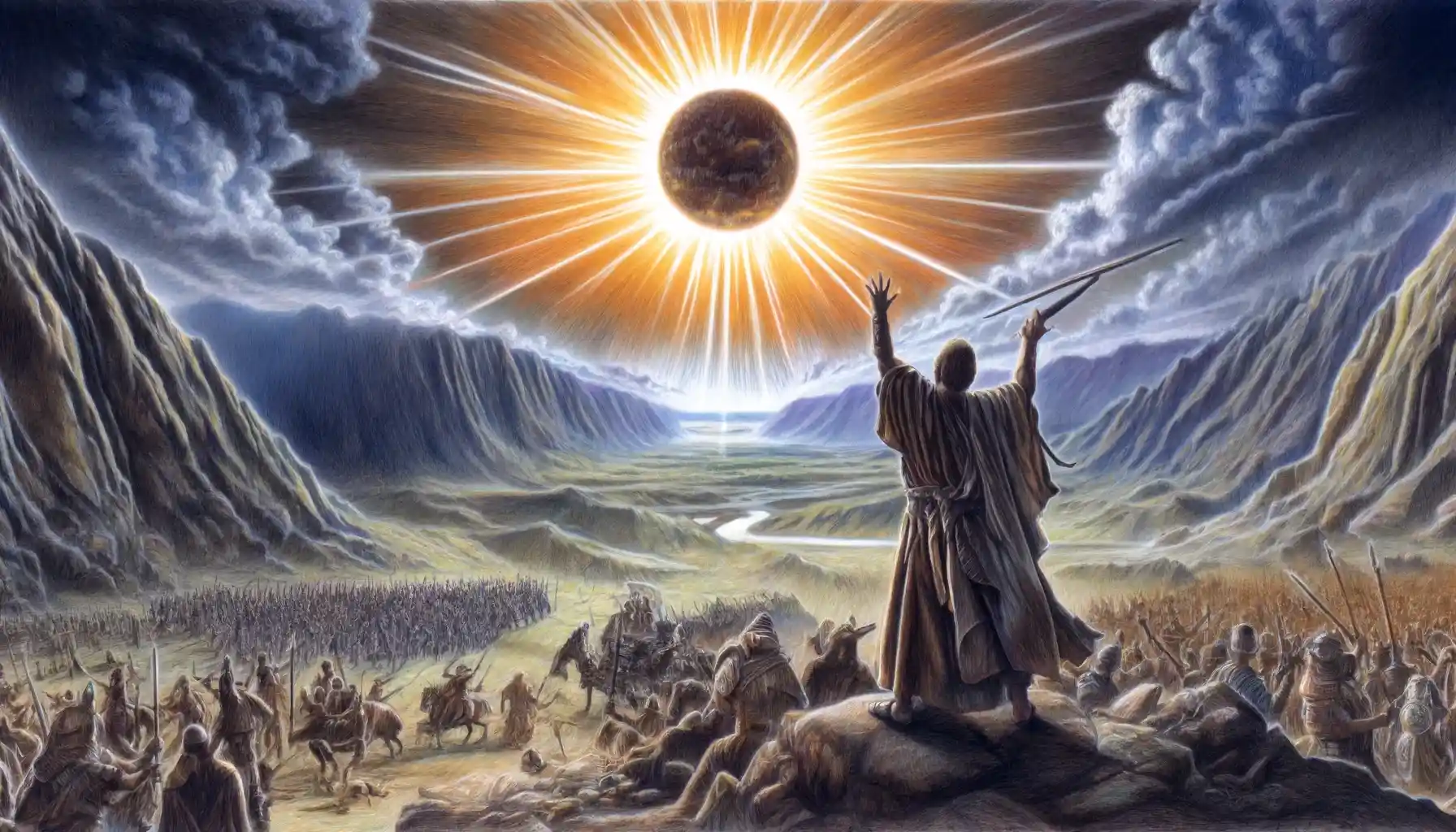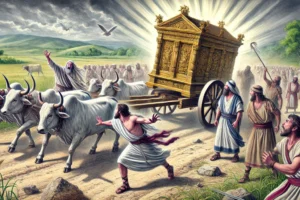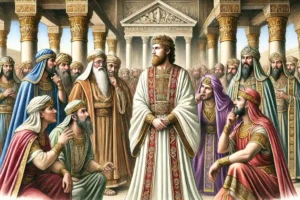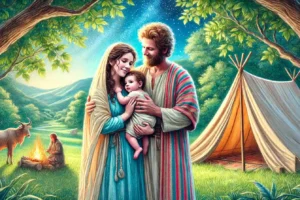
The Sun Stands Still at Gibeon
The event where the sun stands still in Joshua 10:13 is one of the most remarkable miracles recorded in the Bible. Here are some quick facts about this occurrence:
- Biblical Reference: The event is described in Joshua 10:13 during the battle of Gibeon, where Joshua commands the sun and moon to halt.
- Purpose of the Miracle: Joshua requests this extraordinary celestial intervention to prolong the daylight, giving the Israelites sufficient time to secure a victory over the Amorites.
- Divine Response: God responds to Joshua’s request, and the sun and moon stop moving, effectively extending the day, which is a direct demonstration of God’s power and His support for Israel.
- Scriptural Description: The Bible specifically states, “So the sun stood still, and the moon stopped, till the nation avenged itself on its enemies,” emphasizing the divine intervention’s pivotal role in the battle’s outcome.
- Historical and Theological Significance: This event is unique in biblical history as it is the only recorded instance where God manipulates celestial bodies to influence a battle’s outcome, marking it as a significant sign of God’s favor towards Joshua and the Israelites.
- Interpretations: Over the centuries, this passage has been subject to various interpretations, ranging from literal historical accounts to poetic expressions of God’s intervention.
The account of the sun standing still during the battle of Gibeon, as recorded in Joshua 10:13, presents a dramatic episode of divine intervention in biblical history. This passage is not only a cornerstone of miraculous narratives in the Old Testament but also offers significant theological insights and interpretative challenges. Here’s a detailed analysis of this event:
Historical and Textual Context
Joshua 10:13 is part of a larger narrative describing the Israelites’ conquest of Canaan under Joshua’s leadership. The specific context is the battle of Gibeon, where five Amorite kings formed an alliance against the Gibeonites, who had made peace with Israel. Joshua and his forces march all night from Gilgal to Gibeon to engage in battle. During this conflict, Joshua requests that God make the sun stand still to extend the daylight and secure a complete victory.
Biblical Account and Description
The text explicitly states, “And the sun stood still, and the moon stopped, until the nation took vengeance on their enemies.” This is described in the context of a larger miraculous intervention that includes hailstones raining down on the enemies of Israel, suggesting a day marked by supernatural occurrences. The passage further emphasizes the uniqueness of this event by stating that there had never been a day like it before or since, a day when the Lord heeded the voice of a man.
Theological Implications
- God’s Sovereignty and Power: The miracle demonstrates God’s absolute control over creation, affirming His ability to govern celestial bodies to fulfill His purposes and support His chosen people.
- Divine Favor and Partnership: Joshua’s bold request and God’s affirmative response illustrate a unique relationship where human leaders in tune with God’s will can request and receive divine assistance in extraordinary ways.
- Faith and Leadership: Joshua’s leadership is characterized by his unwavering faith in God’s promises and power, serving as a model for faithful reliance on divine support in the face of overwhelming odds.
Interpretative Challenges
- Historicity and Scientific Inquiry: Modern readers often grapple with the literalness of the text versus its phenomenological description of perceived events. Some propose that the language is figurative, expressing the perception of an unusually long day, while others seek astronomical or natural explanations.
- Literary Form and Function: The account can also be understood as hagiographic, designed to exalt the figure of Joshua and illustrate the Israelites’ divine right to the land, thus reinforcing national identity and divine mission.
- Theological Message: Beyond the immediate narrative, the text challenges readers to consider the nature of God’s interventions and the relationship between divine providence and human action.
Broader Biblical and Cultural Impact
This narrative has influenced not just religious but also cultural perceptions of biblical miracles. It serves as a touchstone for discussions on the intersection of faith, history, and science, often cited in debates about the interpretation of miraculous events in the Bible.
In conclusion, the account of the sun standing still in Joshua 10:13 offers profound insights into the nature of God’s interventions, the interplay between divine and human agency, and the theological underpinnings of biblical historiography. It remains a pivotal text for understanding the ways in which divine action is perceived and narrated in the biblical tradition.



